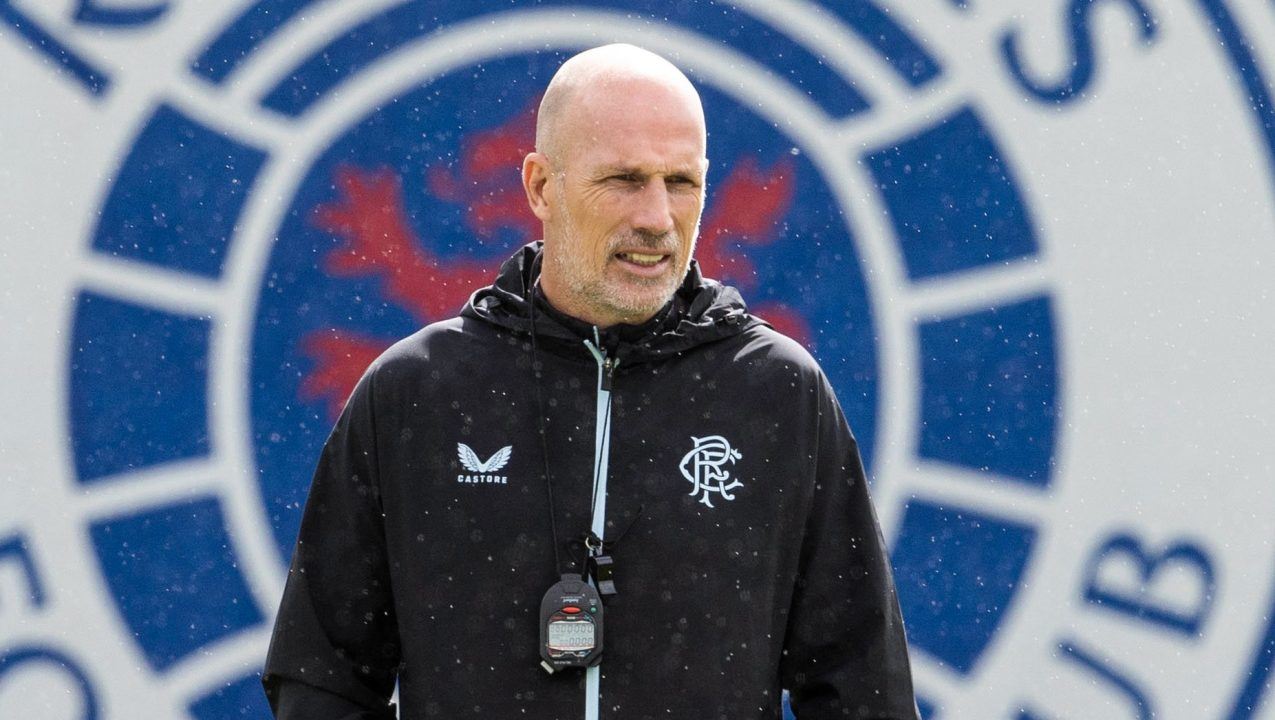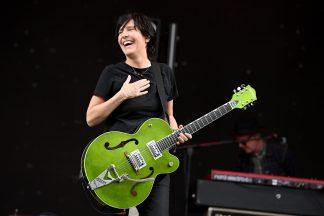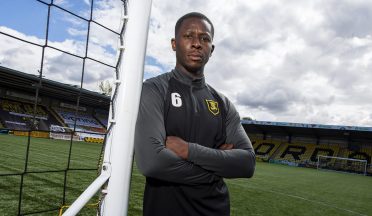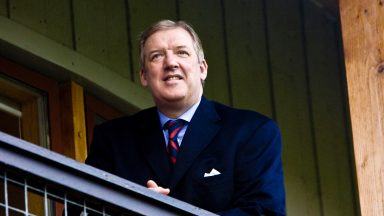Rangers boss Philippe Clement claims allowing B teams into the second tier would benefit everyone as managers responded to a study that raised concerns over a lack of opportunities for young players in Scotland.
A Scottish Football Association report revealed that the country “lags significantly behind comparable nations in terms of young player minutes at every level of the game”.
Scottish football was found to be “significantly underachieving its potential in player development” of footballers aged between 16 and 21.
Former Club Brugge and Monaco manager Clement stressed Rangers were putting “much more attention” towards integrating young players into the first team.
But the Belgian added: “I think what this country misses is that the B teams can play in the second league. That would help a lot. And you see countries where a lot of young players get chances and can grow, but also have a step in between.
“Like Belgium, like Holland, where the B teams of several clubs are playing in the second league or in the third league.
“And because of that, you also get more players who at the age of 20, 21, 22 are ready to play in the first league.”
Clement realises there is opposition to the concept, but added: “I’m sure it will be a very good thing for Scottish football to do that – and for all the teams.
“People sometimes think it’s a good thing for Celtic, Rangers and Hearts and maybe some other teams, but not for the rest.
“But it’s not the case, because the players who don’t succeed here, they have experience in the second league. And then to go to Ross County for example. So everybody benefits out of that.”
Celtic manager Brendan Rodgers believes Scotland’s 12-team top flight places an obstacle and he bemoaned the attitude of some young players.
Rodgers handed Rocco Vata and Daniel Kelly debuts last season but saw the former move to Watford in the summer and the latter appears to be heading to Millwall after rejecting a new contract.
“Fundamentally the league is too small,” he said. “With the number of teams in it, it becomes quite cut-throat. You’re either in the top six or you’re fighting for your life at the end of the season. That can be a difficult environment to put young players into.
“For a club like ourselves, it’s all about patience. We’ve had many examples here of young players that have shown patience with Celtic and trusted the club with their development, those are the guys that have come through here and done very well.
“It’s a real challenge to get into a Champions League squad at 18 but that doesn’t mean you can’t be ready at Celtic.
“But there’s definitely a lack of patience between 18 and 21 and obviously that means that some players decide to move on and go out. So that’s something that’s outwith Celtic’s control.”
Craig Levein last season made Fran Franczak St Johnstone’s youngest ever player at 16 and previously gave the likes of Harry Cochrane, Aaron Hickey and Andy Irving early chances at Hearts.
But the Saints manager feels short-termism prevents more young players getting an opportunity.
“Managers are worried about their jobs, fairly simply,” the former Scotland manager said.
“With the short numbers in the league, every manager has concerns. It’s not an easy thing to turn to a 16, 17, 18-year-old and put him on in front of a seasoned professional.
“I believe young players can bring fresh energy and enthusiasm into the group, but it’s not for me to tell other managers what they should do.
“When I was a teenager, I was playing at Cowdenbeath. There wasn’t the academy systems. Most of the players coming through were playing boys’ club football and maybe signing an S-Form with a club and then going in full-time when they turned 16.
“John Colquhoun and John Philliben were at Stirling Albion, Gordon Durie was at East Fife, so there were a lot of players who weren’t at the bigger clubs and were just playing in the lower divisions.
“There’s a stat regarding players playing at the top level – Champions League – that shows that most of these top players have all played something like 100 matches before they reach 19 or 20 years of age. That early experience is the thing that can drive their career.”
Another study this week showed Motherwell were only behind Dundee in handing Premiership minutes to under-21s but Fir Park manager Stuart Kettlewell accepts circumstances are different for each club.
“We have to try and increase those numbers,” he said. “What we need is the best fit for Scottish football and guidelines we can work within. There’s no magic wand.
“There’s a lot of talk about bringing in rules where you must have a homegrown under-21 player in your starting line-up. You have to deserve the opportunity, you can’t just give someone that.
“What doesn’t help the situation is the pressure on managers to get results and sometimes the natural reaction to that is to play the experienced player who has 300 games.”
Follow STV News on WhatsApp
Scan the QR code on your mobile device for all the latest news from around the country


 SNS Group
SNS Group




















